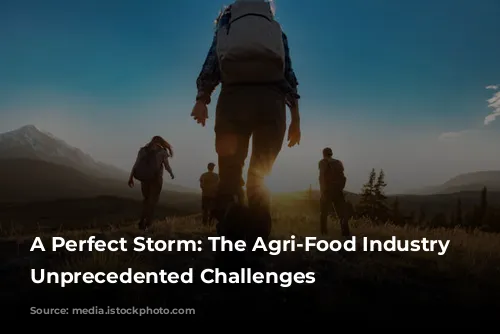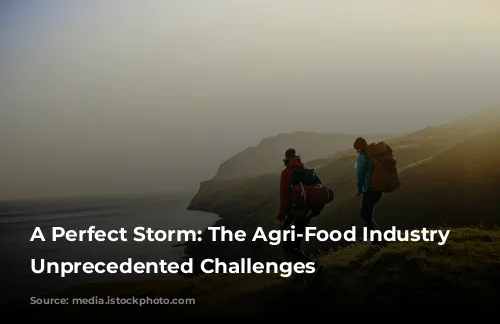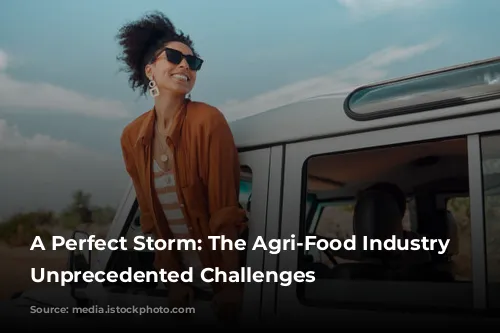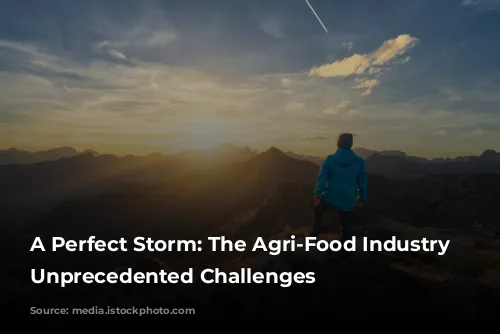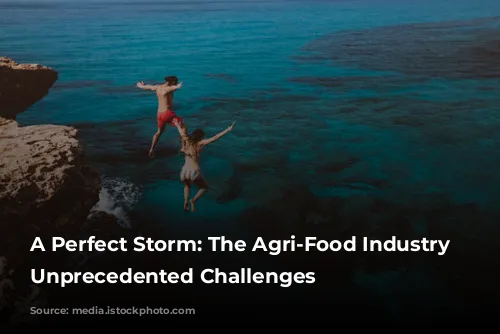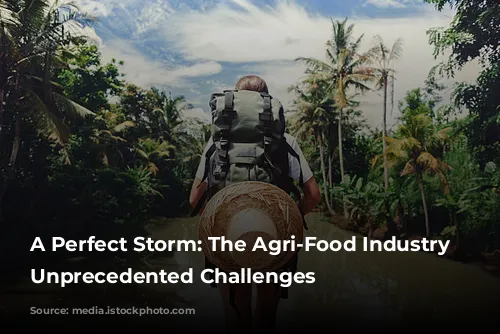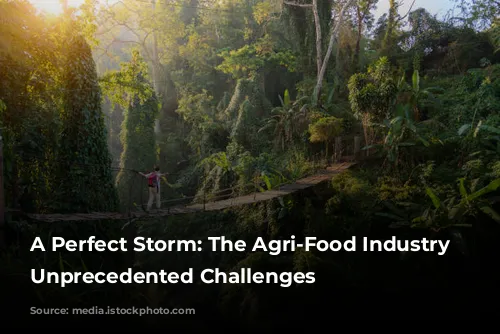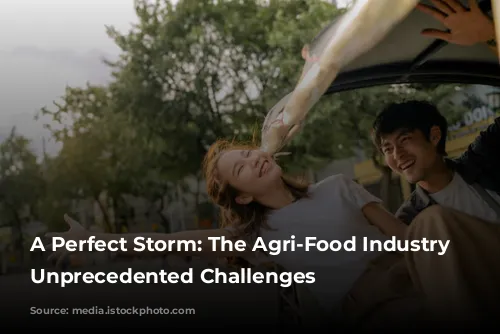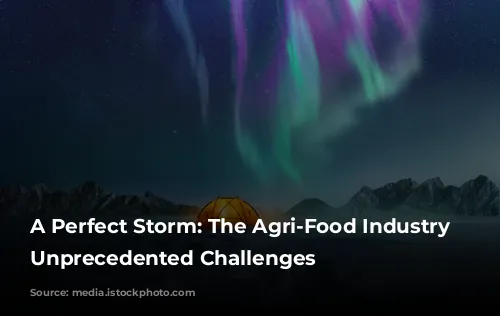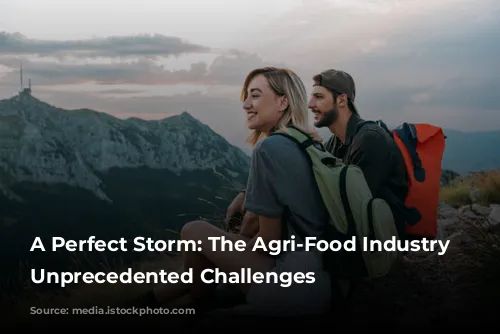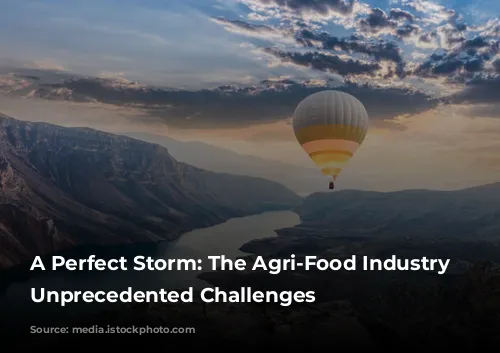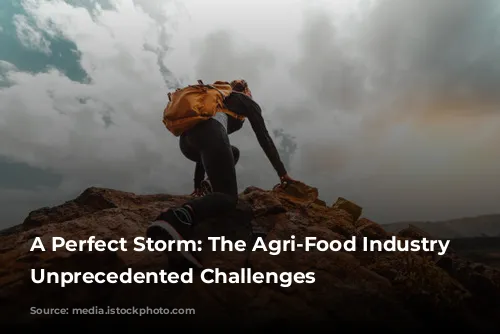The global food supply chain is experiencing a turbulent period, with a confluence of factors impacting its resilience and stability. This article explores the forces shaping this new reality and the challenges ahead.
A Perfect Storm: The Roots of Disruption
The past three years have been a testing ground for the UK and international agri-food sectors. Brexit, COVID-19, and the war in Ukraine have dealt significant blows, creating a perfect storm of uncertainty.
- Brexit, while primarily affecting the UK, has had knock-on effects across Europe, particularly in neighboring countries like Ireland, the Netherlands, and France.
- The COVID-19 pandemic further disrupted global supply chains, highlighting the fragility of our food systems.
- The ongoing war in Ukraine has exacerbated the situation, disrupting vital grain and fertilizer exports, driving up prices, and creating food security concerns worldwide.
Climate Change: An Additional Layer of Complexity
In addition to these geopolitical events, climate change is adding another layer of complexity to the agri-food equation. Extreme weather patterns, including droughts and floods, are becoming more frequent and severe, impacting crop yields and food production. This has forced food companies to search for both technical and commercial solutions to build more sustainable and resilient supply chains.
The Price We Pay: Food Inflation at Record Levels
These combined challenges have resulted in unprecedented levels of food inflation. We haven’t seen price hikes this severe since the early 1970s. The cost of essential food items has skyrocketed, with cucumbers seeing a 50% increase, potatoes up 30%, bananas up 20%, bread up 15%, baked beans up 40%, cheese up 40%, and pasta up 20% in the past year alone.
A Global Issue with No Easy Answers
Consumer incomes are struggling to keep pace with these price hikes, creating a situation that extends beyond the UK, affecting the EU and impacting developing countries like those in Sub-Saharan Africa and Asia. The food crisis is a global issue with no easy answers. While local solutions are being implemented, the root causes are global and complex.
The New Normal: Uncertainty and Change
The combination of these global, regional, and local challenges creates a high level of uncertainty within the agri-food supply chain. The impact of these challenges could be felt for years to come, shaping a new normal that is likely to persist for some time.
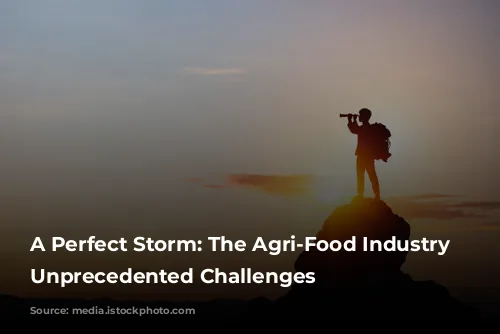
Navigating the Turbulent Waters: Challenges and Solutions
The volatile market and rising costs are forcing the food and agribusiness sectors to adapt and innovate. Here are some key challenges and potential solutions:
The Urgent Need for Resilience
- Food security and sustainability are no longer a given. Many food producers are now looking to markets like China, the US, the Gulf, and India, highlighting the UK’s potential vulnerability in the global market.
- The ability to withstand future shocks is a major concern. Thin supply chain margins raise questions about the resilience of the system in the face of future challenges.
Rethinking the Cost of Food
- Farmers require better and fairer prices. To ensure a sustainable future for the industry, farmers must receive fair compensation for their work.
- Consumers must be prepared to pay more for food. However, widespread understanding of the costs involved in food production is lacking, making this a significant challenge.
- Change within the supply chain often requires unpopular decisions. These changes may require generational shifts, adjustments in market regulation, and modifications in consumer behavior.
Sustainability: A Key Pillar of the Future
- The focus on sustainability has become more sophisticated. However, there is still a need for better data and time to assess the impact of investments in this area.
- Data will play a critical role in shaping the future of the agri-food sector. Farmers and food companies will need to leverage data to optimize operations and ensure sustainable practices.
- The commercial nature of the supply chain is increasingly intertwined with sustainability considerations. This shift reflects the critical importance of sustainability in navigating future challenges.
Collaboration: The Key to Resilience
- A siloed approach is no longer viable. Building a more resilient future requires collaboration across the entire supply chain.
- Strong industry players and government policies will need to work in tandem. Input suppliers, farmers, food companies, and a range of stakeholders must work together to achieve meaningful change.
Planning for a Sustainable Future
- The agri-food sector needs to develop a comprehensive plan for the future. This requires a focus on understanding and adapting to technological advancements and shifting consumer behaviors.
- Developing technical and management skills is crucial. Farmers and food businesses need to embrace technology, understand sustainability challenges, and navigate market trends effectively.
- Ultimately, the future of the agri-food sector depends on building a more resilient, sustainable, and collaborative system. This journey requires a commitment to understanding the complex challenges ahead and embracing innovative solutions to secure a sustainable future for all.
